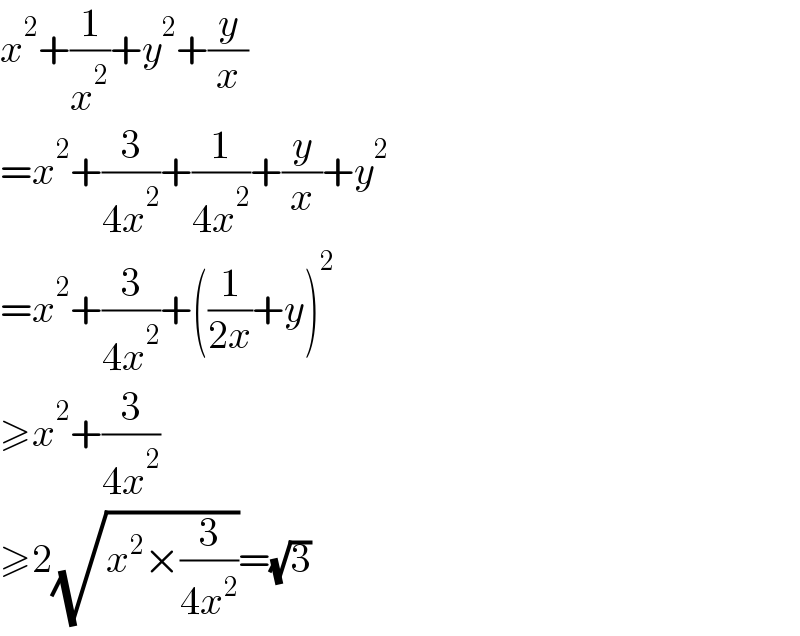
Question and Answers Forum
Question Number 165795 by mnjuly1970 last updated on 08/Feb/22

Answered by ArielVyny last updated on 08/Feb/22
![soit f(x,y)=x^2 +(1/x^2 )+y^2 +(y/x) montrons que f(x,y)≥(√3) x≠0 -fixons x∈R on a f_x (y)=x^2 +(1/x^2 )+y^2 +y(1/x) f_x (y)=(y+(1/(2x)))^2 −(1/(4x^2 ))+x^2 +(1/x^2 ) =(y+(1/(2x)))^2 +(3/(4x^2 ))+x^2 α=(1/(2x))→x=(1/(2α)) f_x (y)=(y+α)^2 +3α^2 +(1/(4α^2 )) posons α^2 ∈[0;1] on a 3α^2 +(1/(4α^2 ))≥(√3) de meme pour α^2 ∈]1;+∞[ 3α^2 +(1/(4α^2 ))≥(√3) de plus cbaque terme de f_x (y) est positif donc f_x (y)≥(√3) -fixons y f_y (x)=x^2 +(1/x^2 )+(y/x)+y^2 (x≠0) f_y (x)=(x−(1/x))^2 +y^2 +2+(y/x) =(x−(1/x))^2 +(y+(1/(2x)))^2 −(1/(2x^2 ))+2 par raisonnement analogue on trouve l′inegalite NB on pourra etudier q(x)=−(1/(2x^2 ))+2−(√3) extraire l′inerval ou q(x) est negatif et montrerque si l′on ajoute (x−(1/x))^2 +(y+(1/(2x)))^2 f_y (x)≥(√3)](Q165810.png)
Commented by mnjuly1970 last updated on 09/Feb/22

Answered by mr W last updated on 08/Feb/22

Commented by mnjuly1970 last updated on 09/Feb/22

